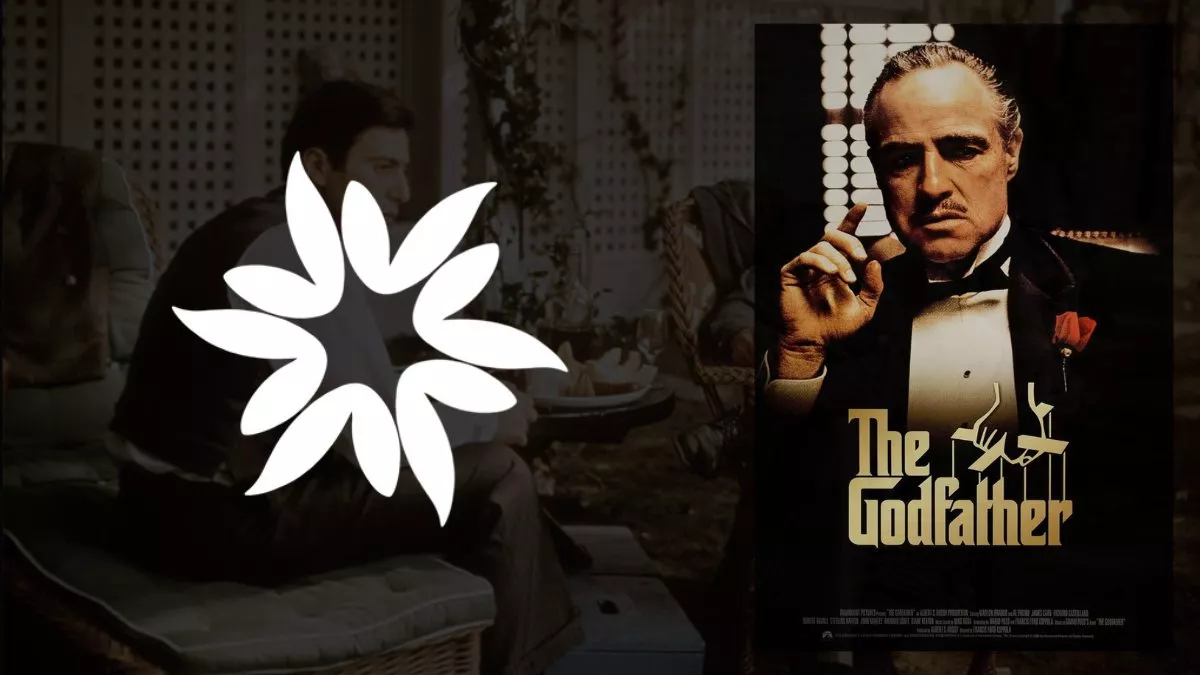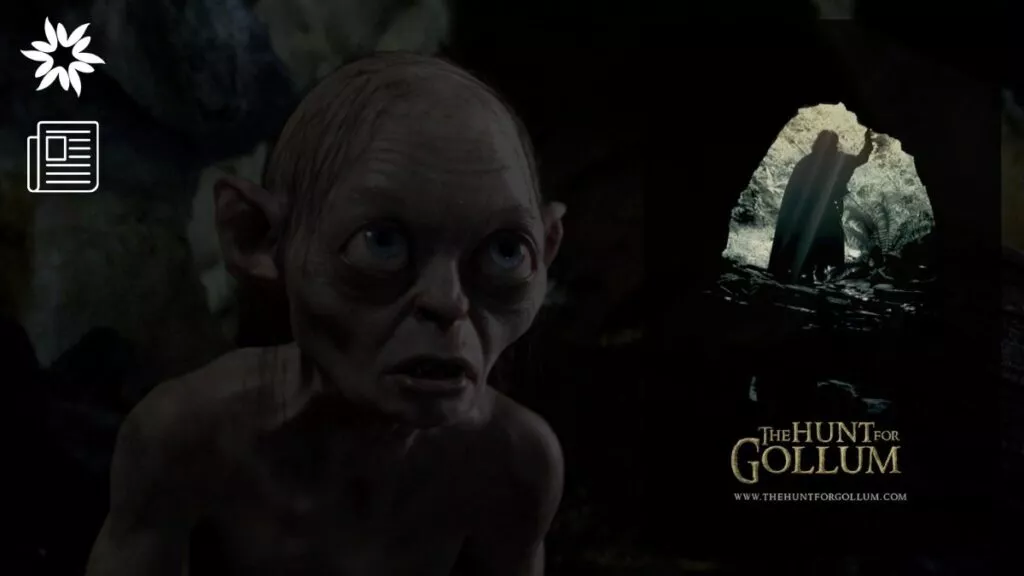The ’60s movies had their charm, no doubt about it, but the ’70s took things to a whole new level. Interestingly enough, this decade brought us some of the most iconic films that still hold a special place in our hearts today.
During this time, directors and actors weren’t scared to take big risks, which led to movies that didn’t just entertain but also made us think, feel, and sometimes question everything we knew.
So, if you’re ready to check out some of the greatest films ever, get ready—because these are the must-see movies from the 70s that you won’t want to miss!
Key Takeaways
- The 70s produced some of cinema's most famous and influential movies, like The Godfather and Star Wars.
- These films changed pop culture, shaping music, fashion, and even how stories are told in movies.
- The movies of the 70s introduced new ways of filmmaking, from special effects in Star Wars to the deep storytelling in The Godfather Part II.
1. The Godfather (1972)
The Godfather, directed by Francis Ford Coppola, is often called one of the best films ever made. Based on Mario Puzo’s hit novel, it tells the intense story of power, family ties, and loyalty within the Corleone mafia family in post-World War II New York.
The plot focuses on Michael Corleone (played by Al Pacino), who starts as a reluctant outsider but eventually takes over as the family’s ruthless leader, where he follows his father’s footsteps, Don Vito Corleone (Marlon Brando).
It’s safe to say that making the film wasn’t easy. The studio wanted to update the setting, and there was much debate over casting Marlon Brando and Al Pacino.
Despite the drama, Brando’s portrayal of Vito Corleone became legendary, reviving his career and earning him an Oscar for Best Actor.
However, the film wouldn’t have been what it is without Gordon Willis’s cinematography. Known for its dark, shadowy style, it perfectly matched the movie’s mood of looming danger and moral uncertainty.
The Godfather was a huge hit critically and at the box office. It was the highest-grossing movie of 1972 and won three Oscars, including Best Picture.
It goes without saying that this iconic 70s movie changed how we see gangster movies, as it shows mafia members as complex people with their own code of honor and strong family bonds.
Some of the film’s scenes, like the horse head in the bed, the baptism massacre, and Brando’s quietly terrifying performance, have become iconic moments in film history.
2. Star Wars: Episode IV – A New Hope (1977)
As popular 70s movies go, Star Wars: Episode IV – A New Hope, directed by George Lucas, sits comfortably at the top—it was a game-changer that shook up science fiction and pop culture.
Set in a galaxy far, far away, it follows Luke Skywalker (Mark Hamill), a farm boy caught up in an epic battle against the evil Galactic Empire.
With the help of Princess Leia (Carrie Fisher), smuggler Han Solo (Harrison Ford), and the droids R2-D2 and C-3PO, Luke tries to take down the Empire’s superweapon, the Death Star, and bring freedom back to the galaxy.
This groundbreaking film was the first of its kind with special effects, especially the cutting-edge motion control camera system that made the space battles so exciting.
John Williams’ unforgettable score, featuring the “Imperial March” and the “Main Title” theme, became instantly recognizable and matched the film’s epic feel.
A New Hope also set the stage for the blockbuster movie trend, with its massive success in merchandise and sequels, kicking off one of the most successful franchises in movie history.
When it hit theaters, Star Wars took the world by storm, smashing box office records and winning six Oscars for its technical brilliance.
Aside from the amazing effects, what made it a hit was the timeless story of good vs. evil, hope, and heroism that connected with audiences on a deeper level.
As you probably already know, Star Wars’ impact is huge. It has inspired countless filmmakers and led to a massive expanded universe of sequels, prequels, spin-offs, and more.
3. Jaws (1975)
When you think of movies from the 70s, Jaws, directed by Steven Spielberg, probably comes to mind. As one of the most influential films of its time, it changed the game for Hollywood and essentially invented the summer blockbuster.
Based on Peter Benchley’s novel, it tells the story of a gigantic great white shark that causes chaos in a small New England beach town.
The suspense kicks into high gear when three guys—played by Roy Scheider, Robert Shaw, and Richard Dreyfuss—team up to take down the beast.
Though making Jaws was no walk in the park. The production was a mess, with all sorts of delays and problems, especially with the mechanical shark they called “Bruce,” which rarely worked right.
Because of that, Spielberg had to get creative and keep the shark hidden for most of the movie. But this worked in his favor, as it made the film even scarier.
And who can forget John Williams’ legendary score? Simply hearing those two notes can make anyone’s heart race.
Despite all the drama behind the scenes, Jaws became a massive hit, pulling in over $470 million worldwide and holding the title of the highest-grossing film until Star Wars came along two years later.
It snagged three Academy Awards, including Best Original Score, and set the standard for summer blockbusters.
Let’s face it; the movie left a lasting mark on pop culture, making people everywhere afraid of sharks and inspiring countless other films.
4. Rocky (1976)
Rocky, directed by John G. Avildsen and written by its star, Sylvester Stallone, is the ultimate underdog tale that struck a chord with audiences worldwide.
The movie follows Rocky Balboa, a small-time boxer from Philly, who gets an unexpected shot at the world heavyweight title.
Stallone poured his heart into the role, drawing from his struggles as a down-on-his-luck actor, making Rocky’s journey so relatable and touching.
The story behind Rocky is just as much of an underdog story as the film itself. Stallone, who wasn’t a big name then, wrote the script in a few days and insisted on playing Rocky, even though studios were throwing big money at him to cast someone more famous.
With a budget of just about $1 million, the film went on to make over $225 million worldwide and became one of the biggest hits of 1976.
Sure, it’s one of the biggest movies from the 1970s, but even today, people can’t resist quoting “Yo, Adrian!” and other iconic lines from this timeless film.
Rocky won three Academy Awards, including Best Picture, and kicked off a franchise that turned Stallone into a global star.
The training montage, set to Bill Conti’s inspiring music, and the epic final fight have become iconic scenes in movie history.
Beyond entertainment, Rocky captures the essence of perseverance, self-belief, and never giving up on your dreams.
5. The Exorcist (1973)
The Exorcist, directed by William Friedkin and based on William Peter Blatty’s 1971 novel, is arguably still one of the biggest horror movies ever made.
It tells the terrifying story of a young girl, Regan MacNeil, who gets possessed by a demon and the desperate fight of two priests to save her with an exorcism.
Unsurprisingly, this movie shocked audiences with its intense and graphic scenes. At that time, mainstream cinema hadn’t pushed the boat out quite like The Exorcist did; it went beyond the limits of what was considered acceptable.
And you can tell people hadn’t seen anything like this before; they were so freaked out that some fainted or even threw up during the movie, which stirred up many debates about its moral and spiritual messages.
But despite—or maybe because of—all the controversy, The Exorcist was a massive hit at the box office, making over $441 million worldwide.
It was the first horror film ever nominated for an Academy Award for Best Picture, earning ten nominations and winning two, including Best Adapted Screenplay for Blatty.
Undeniably, the movie’s influence on horror is huge, inspiring sequels, prequels, and plenty of imitations.
With its groundbreaking special effects, intense atmosphere, and unforgettable performances by Linda Blair, Max von Sydow, and Jason Miller, The Exorcist earned its spot as a horror classic.
6. One Flew Over the Cuckoo’s Nest (1975)
One Flew Over the Cuckoo’s Nest, directed by Miloš Forman and based on Ken Kesey’s 1962 novel, is a powerful film about fighting against the system.
It stars Jack Nicholson as Randle P. McMurphy, a rebellious guy who pretends to be insane so he can serve his prison sentence in a mental institution instead of behind bars.
But once he’s inside, he butts heads with Nurse Ratched, played by Louise Fletcher, who embodies the cold, oppressive power of the institution.
The movie was a massive success with critics and at the box office. Incredibly, it became only the second film to win all five major Academy Awards: Best Picture, Best Director, Best Actor (for Nicholson), Best Actress (for Fletcher), and Best Adapted Screenplay.
The Academy Awards make sense, as Nicholson’s portrayal of McMurphy is often hailed as one of the best performances in film history.
One Flew Over the Cuckoo’s Nest struck a chord with 1970s audiences during a time when people were questioning authority and pushing for social change.
So, it’s not surprising how it remains relevant today, especially in its critique of how society handles mental illness and the struggle for individuality.
In pop culture, the film left a big mark, with Nurse Ratched symbolizing the dangers of unchecked power.
More importantly, it changed how people viewed mental health institutions and exposed the often harsh and dehumanizing conditions inside.
With its legacy continuing through various adaptations and media references, One Flew Over the Cuckoo’s Nest firmly holds its place as a masterpiece in American cinema.
7. Apocalypse Now (1979)
Apocalypse Now, directed by Francis Ford Coppola, is a gripping Vietnam War film loosely based on Joseph Conrad’s novella Heart of Darkness.
The movie tells the story of Captain Willard, played by Martin Sheen, who is sent on a mission to take out Colonel Kurtz, portrayed by Marlon Brando.
Kurtz has lost his mind and set himself up as a god-like figure among a local tribe in the Cambodian jungle. As Willard travels up the Nùng River, he experiences the growing madness and chaos of war.
Like many of the 1970s movies on our list, the production faced many problems: typhoons wrecked sets, Martin Sheen had a near-fatal heart attack, and Brando showed up overweight and unprepared.
As a result, the whole thing took way longer than planned, and Coppola even contributed his own money to keep it going.
But despite all the setbacks, the movie was a hit. It won the Palme d’Or at Cannes and grabbed several Academy Award nominations, including Best Picture.
Thanks to Vittorio Storaro’s stunning visuals and seriously immersive sound design, the film won Oscars for Best Cinematography and Best Sound.
Even today, Apocalypse Now is widely regarded as one of the greatest war movies ever, as it portrays a powerful and haunting look at the psychological horrors of war.
8. Taxi Driver (1976)
Taxi Driver, directed by Martin Scorsese and written by Paul Schrader, is a raw and intense look at urban loneliness and mental breakdown. Robert De Niro plays Travis Bickle, a troubled Vietnam vet who drives a taxi at night in New York City.
The film follows Travis as he becomes more obsessed with cleaning up the city’s “filth” and saving a young prostitute, played by Jodie Foster.
Taxi Driver is unforgettable for its raw look at a man slowly losing it, pushed to the brink by the filth and corruption around him. And De Niro’s performance, especially the “You talkin’ to me?” scene, is a line stuck in everyone’s mind and will be quoted forever.
When it was released, the film’s intense look at violence and the dark side of the human mind was groundbreaking—and pretty controversial.
The movie was a big hit with critics, earning four Academy Award nominations, including Best Picture.
On top of that, it won the Palme d’Or at Cannes. Scorsese and De Niro’s collaboration on Taxi Driver solidified their status as one of the most powerful director-actor teams in film.
Over the years, the movie’s influence can be seen in many later films that explore themes of loneliness, alienation, and the darker side of society.
9. The Godfather Part II (1974)
The Godfather Part II goes back to show how Vito Corleone, played by Robert De Niro, got his start while continuing the story of his son Michael, portrayed by Al Pacino.
Many people actually think this sequel is even better than the first, which says a lot, considering how amazing the original was.
It feels like the best 70s movies followed a pattern, as again, making this movie wasn’t easy. They had tricky location shoots, and some of the cast wanted big pay raises.
Director Francis Ford Coppola didn’t even want to do the sequel at first, but once he was given complete creative control, he created a film that dives into heavy themes like power, betrayal, and the American Dream.
Remarkably, the movie’s switch between the two timelines was groundbreaking at the time and set a new standard for storytelling in film.
Widely praised by critics and audiences, The Godfather Part II was a massive success, earning $93 million worldwide.
At the Oscars, it won six awards, including Best Picture and Best Director for Coppola, making it the first sequel to win the Best Picture Oscar.
Notably, De Niro won Best Supporting Actor for his role as young Vito, cementing the film’s place in history—it’s so iconic that it’s been preserved in the National Film Registry for its cultural, historical, and artistic significance.
10. Saturday Night Fever (1977)
Saturday Night Fever, directed by John Badham and starring John Travolta, is like a snapshot of the disco era in the late 1970s.
It tells the story of Tony Manero, a young guy from Brooklyn who escapes his everyday life by losing himself in the world of disco. Travolta’s performance was undoubtedly electric, and the movie became a massive cultural hit.
The soundtrack, featuring hits like “Stayin’ Alive” and “Night Fever” by the Bee Gees, became one of the best-selling soundtracks ever, helping to skyrocket disco’s popularity worldwide.
Travolta’s portrayal of Tony even got him an Oscar nomination for Best Actor, and the movie made over $237 million worldwide, making it one of the biggest box-office successes of the 1970s.
But the impact of Saturday Night Fever went beyond ticket sales, as it left a lasting mark on fashion, dance, and music, influencing popular culture in a big way.
It makes sense that the film’s gritty look at life in Brooklyn, mixed with the glitzy escapism of disco, struck a chord with audiences.
Beyond the disco craze, the movie also explores themes like identity, ambition, and searching for meaning in a changing world. It’s no wonder it’s still talked about today when people reflect on the 1970s.
Relive the Best Movie Moments of the 70s
So there you have it—our top 10 picks for the best movies from the 70s! If you haven’t seen these classics yet, now’s the perfect time to check them out.
Don’t just take our word for it—grab some popcorn, get comfy, and enjoy these timeless movies that have shaped cinema as we know it.
These movies aren’t just worth watching—they’re experiences that will stay with you long after the credits roll.








